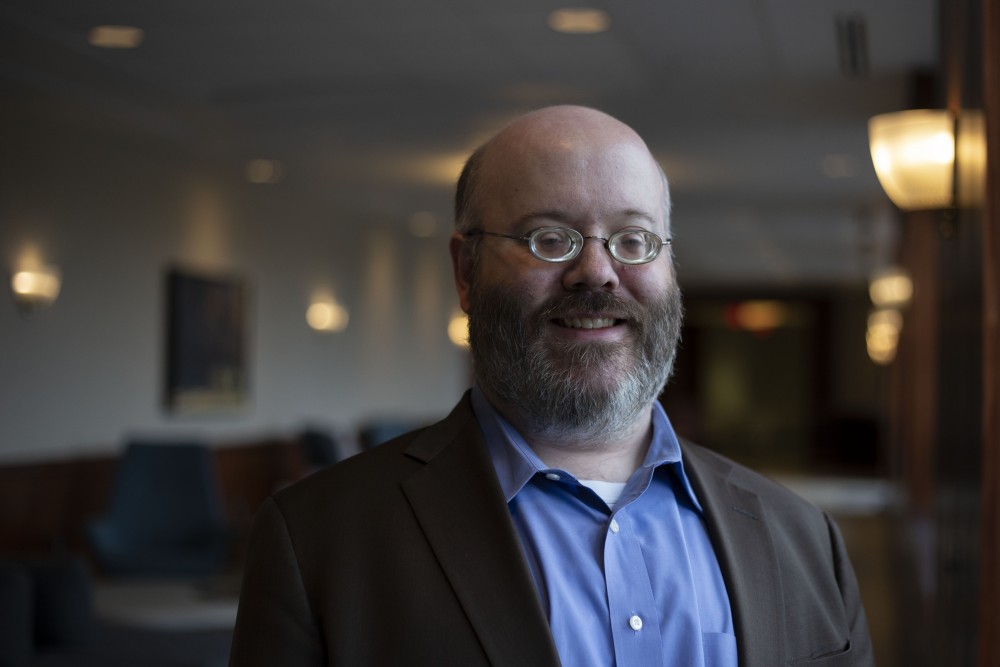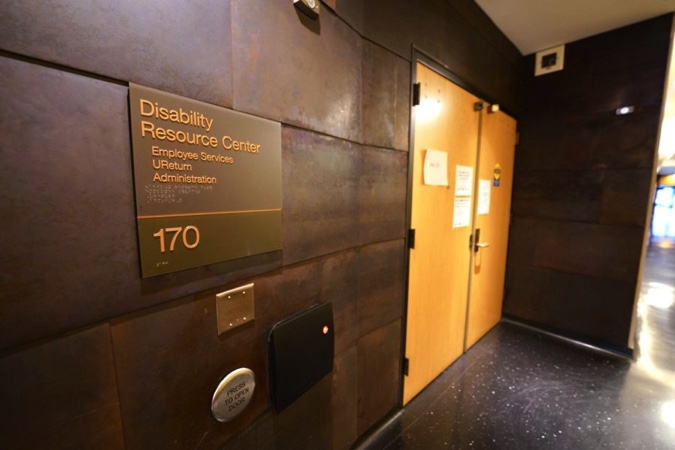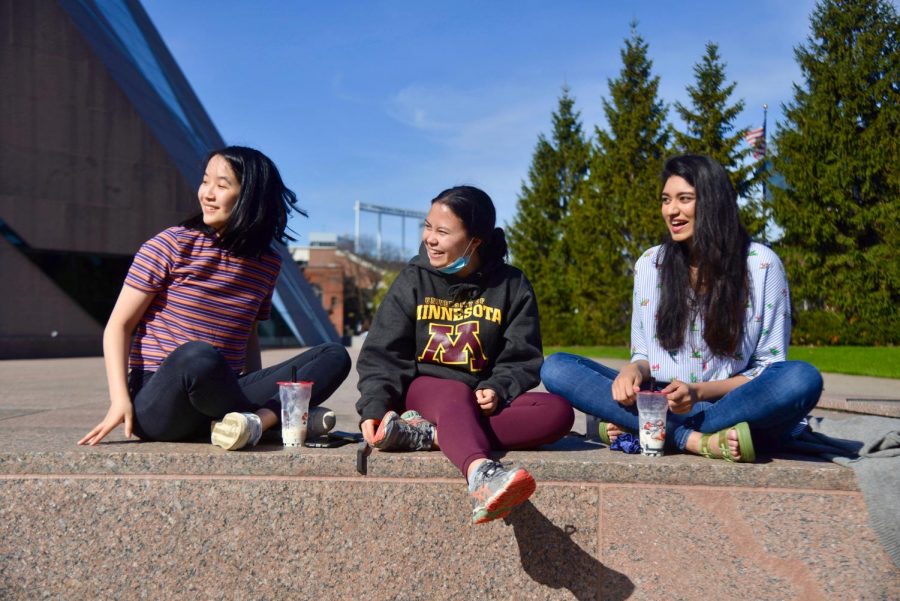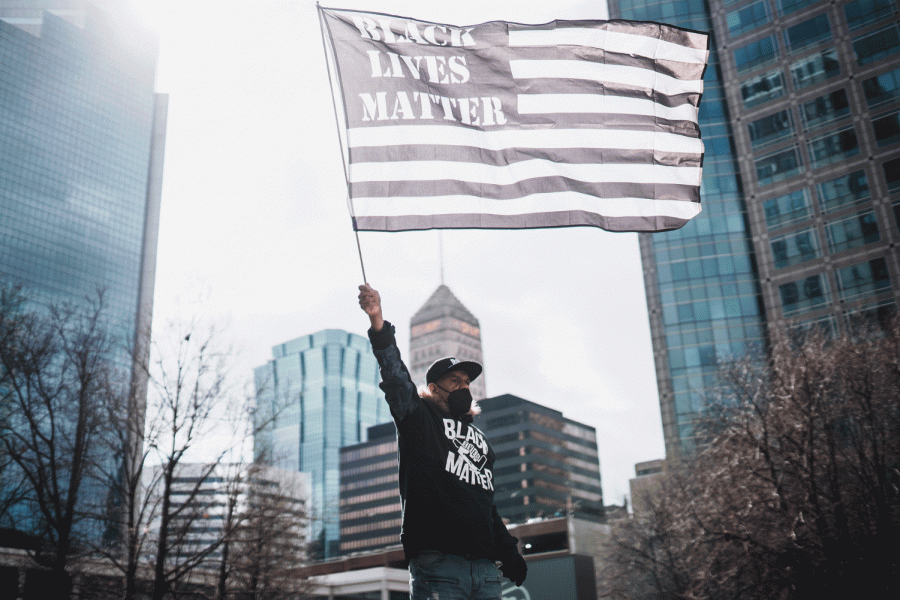For Angela Carter, disability is more than a field of study.
A Ph.D. candidate and instructor at the University of Minnesota studying feminism and disability studies, Carter identifies as a non-apparent disabled person.
“I think about disability sort of always,” she said. “I always knew I wanted to be an educator, but after becoming disabled [in college], it made me realize how inaccessible higher education was.”
But while faculty and students have shared the need for changes and updates, many say major systemic changes at the University are few and far between.
Almost 4,000 students are registered with the Disability Resource Center, though not every student with a disability is registered. Many students who can request accommodations don’t know where to go or question if they are “disabled enough” to receive them, said Richard Allegra, associate director of education and outreach services at the National Center for College Students with Disabilities.
“It can’t just be the DRC or student groups working on [education and advocacy]. It needs to be an all-campus approach … so administration, faculty, everyone can learn how to help and how to make campus more welcoming,” Allegra said.
It’s a great prospect, but still just the start, Carter said.
“A lot of students have mixed experiences, and some professors just don’t understand why disabled students need support. Campus culture needs to come to an understanding that folks with any disability are just as valid as others … they just need support to level the playing field,” she said.

Adapting the classroom
As an instructor at the University, accessibility is essential in Carter’s classes. Her list of upfront classroom accommodations is extensive — she wants to be inclusive to people of all abilities from the beginning, she said.
All of her handouts can be read by screenreaders, videos are always captioned, groups are chosen by her to avoid anxieties and tests are take-home.
While she’s still learning how to best accommodate a diverse range of needs, Carter said the response from students has been appreciative. She’s been told her classes are unlike most other instructors, and students feel like they can be open with her about their disability status.
“I’m constantly learning and constantly thinking about [accessibility]. I always want to learn more … we all make mistakes in the process, but my students see that I’m trying and I can adapt,” she said.
But Carter’s class isn’t the norm. Many disabled students on campus have described receiving pushback from faculty or classmates because of their requests.
Carter Greenland, who identifies as a disabled person, said they’ve been met with resistance when discussing accommodations from professors throughout their years in school.
Greenland said one instructor failed their paper, then told them if they hadn’t disclosed their disability beforehand, the instructor would have assumed Greenland was illiterate.
“Even in high school, I couldn’t get accommodations for the longest time because they told me I wasn’t failing my classes. Like, that’s the goal, right?” Greenland said.
Part of Carter’s resolve to be adaptive as an instructor is because she’s been where her students are; she has had supportive professors who understood why she needed extra time, while she said others questioned why she needs accommodations if she can still write great papers.
“I’ve had some people push back, and I’ve had other people that understood that they don’t have to understand. They just have to support me and meet my accommodations,” she said.
Current training
The Senate resolution would mandate disability training for faculty, but Carter said while it would be helpful it could also lead to strain on resources for the Disability Resource Center. The DRC has already battled with space for students to test, and adding an entire infrastructure for creating training would require funding they may not receive.
Carter took spring semester off from teaching to instruct at a school in Missouri. She said not much has changed for faculty in her years at the University. She said any training on disability accommodations has always been optional, and most training she has found she had to seek out herself.
The resolution would create training videos for faculty that would contain information on federal mandates regarding disability, the process of obtaining a letter from the DRC and how to address accommodations, co-founder of the Organization for Graduate and Professional Students with Disabilities Ryan Machtmes said.
“The student experience and student perspective should, and will be, front and center, so the faculty [will] have an improved understanding of what their students face and the processes that they go through,” Machtmes said.
Campus training is crucial, but it’s frequently lacking at universities across the country, Allegra said. NCCSD, a federally-funded center, provides assistance and information for anyone learning about disability, whether it be prospective students, parents or faculty. And while some instructors have pushed back against student accommodation requests, Allegra said the vast majority just don’t know what to do.
“Many faculty, when a student tells them in office hours that they need extra time or have an accommodation letter, become deer in the headlights. They don’t know how to handle that,” Allegra said.
Finding or creating spaces
But while most universities have basic accommodations, many say campuses need more. Support from faculty and administration is vital, but social spaces and groups for students with disabilities should be a major point, Allegra said.
“There’s a need for help, but also for a sense of belonging. Students may want to connect with others and identify themselves as a part of a group, but there’s not always a place for that,” Allegra said.
Until a few years ago, many major groups for students on campus with disabilities were defunct or non-existent. The Disabled Student Cultural Center was inactive until recently. It now hosts accessible game nights, advocacy events and discussion hours on topics like accessibility and representation. Some felt there wasn’t a place for them to discuss disability.
For Machtmes, co-founding OGPSD meant building from the ground up. In the past two years, the group’s meetings have grown from five members to 80. In addition to working with other organizations to craft the Senate resolution to improve training, they’re starting the process of documenting all spots on campus with accessibility problems.
“We’re cataloging with geolocation, date and time the various physical facilities with accessibility issues. Hopefully, video evidence en masse [presented] to campus administrative officials will cause them to address those critical needs,” Machtmes said.
Carter co-founded the Critical Disability Studies Collective in 2015. The group examines disability as a distinct culture instead of something that needs to be fixed, which Carter said wasn’t frequently discussed on campus.
“It’s not just something to study in the applied fields like counseling, rehabilitation or medicine,” she said. “It intersects with all of those other vectors of privilege and oppression, race, class, gender and sexuality.”
But as outreach and education on disability continue to grow, those on campus should remember to not assume anything about those with disabilities, Carter said. Some may not identify as a disabled person, others may not want to register with the DRC and some prefer not to talk about their disability at all.
“[You should] listen to disabled people’s experiences from disabled people, and not assume we can’t do things just because we’re disabled. Instead of making assumptions, don’t be afraid to ask us or talk to us,” Carter said. “Don’t assume you know what’s better for them than they do.”






















